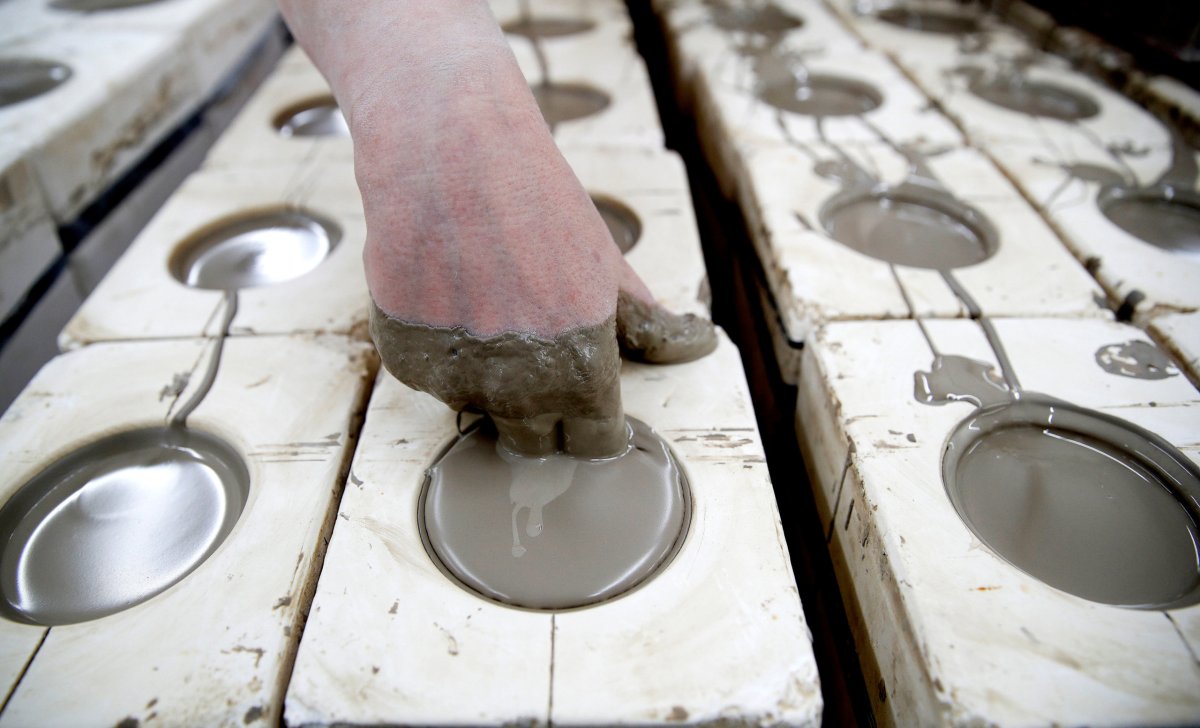LONDON (Reuters) – British manufacturing growth slid to a 17-month low in April, extending a run of mediocre economic data and further reducing the chances of an interest rate hike by the Bank of England next week.
Markit/CIPS UK Manufacturing Purchasing Managers’ Index (PMI) fell a full point to 53.9 last month, it said on Tuesday, below the median expectation for a reading of 54.8 in a Reuters poll of economists.
It is the second disappointing data point in the space of a few days after official figures on Friday showed Britain’s economy barely grew in the first three months of 2018 – with heavy snow only one factor.
“While adverse weather was partly to blame in February and March, there are no excuses for April’s disappointing (PMI) performance, making the chances of a near-term hike in interest rates by the Bank of England look increasingly remote,” said Rob Dobson, director at survey compiler IHS Markit.
Even before Friday’s weak growth figures, BoE Governor Mark Carney had said economic data had been mixed and suggested the BoE might wait rather than raise rates to a new post financial crisis high of 0.75 percent on May 10.
There was nothing in Tuesday’s PMI report to suggest British factories – which account for around a tenth of overall economic output – will regain their vigor of late 2017, when a recovery in the euro zone boosted British manufacturing.
Gauges of new orders and exports weakened to the lowest levels since mid-2017, while manufacturers took on staff at the slowest pace since February last year.
IHS Markit said weakness centered especially around producers of consumer goods who have been hit by the reduced spending power among households caused by last year’s rise in inflation.
“On this footing, the sector is unlikely to see any improvement on the near-stagnant performance signaled by the opening quarter’s GDP numbers,” Dobson said.
Last week’s official data showed manufacturing output increased by 0.2 percent quarter-on-quarter in the first three months of 2018, a far cry from growth rates of more than 1 percent during the second half of last year and possibly reflecting signs of a slowing of euro zone growth in early 2018.
IHS Markit said optimism among manufacturers dipped to a five-month low in April as concerns about Brexit, trade barriers and the overall economic climate remained widespread.
“Weak demand meant firms are seeing backlogs of work fall and stocks of unsold goods rise, limiting the need for output to rise in May,” Dobson said.
The PMI’s gauge of factory cost pressures cooled to a nine-month low, something that will be noted by BoE rate-setters who are keeping an eye on inflation pressures ahead of next week’s policy decision.
Separate PMIs for the construction industry and the much larger services sector are due on Wednesday and Thursday.
(Reporting by Andy Bruce, Editing by William Schomberg and Hugh Lawson)



















